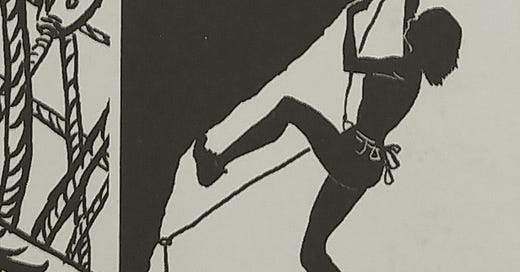“The family, with its narrow privacy and tawdry secrets, is the source of all our discontents.”
In his new book, Knife, Salman Rushdie quotes Edmund Leach, then provost of his Cambridge college, King’s.
I couldn’t disagree more. This could be the case, but family can also be the cocoon of your infancy, the corral where you first run, sheltered, yet in the great outdoors; eventually, your springboard into the vast pool of life.
In the dice game of birth, we don’t get to choose family. I guess I just lucked out, big time.
But if I dig one generation back, there’s more to it than that. My mother was a romantic, and a poet. Having lost her father at fourteen, she immersed herself in literature, and was writing her doctoral thesis when her late father’s friend, the venerable R.N. Banerjee, ICS, first Chairman of the UPSC, yanked her out of her university ivory tower, and asked her,
“Young lady, have you thought about marriage?”
“No, Uncle B”, she stuttered.
“Then please do.”
Uncle B had heard of a suitable young man who worked for Burmah Shell in distant Madras, and presumably arranged to discharge some of his official responsibilities there. Be that as it may, all of Madras Gymkhana Club was activated one evening when the Chairman of the UPSC demanded of the Hall Porter that he pull Mr. Satya Nand off the tennis courts in order that he present himself.
Thus screened, my father was despatched to Delhi to meet my mother, yet again yanked out of the reading rooms of Allahabad University. They met in the musty corridors of the National Museum, escorted by my aunt, my bhua.
“Is he at least good-looking?”, Uncle B demanded, when my mother said she didn’t have much to say about the meeting.
Ma nodded shyly, and the matter was settled.
On the way back to Allahabad, Ma told me, she decided that the rest of her life was going to be devoted to making a happy family. I don’t know whether she shared that vow with my father. I don’t know whether he made any such conscious pledge to himself, because he was not a man of words. Caring came naturally to him, his patience was boundless, and though he set very high standards for himself, he had no expectations of us. His love was always unconditional.
Taali ek haath se nahin bajtee - it takes two to tango, and in their dance, my parents spun the cocoon of our growth. In our eyes, the cocoon was seamless silk, and we never once caught so much as a glimpse of strain. Strains there must have been: Ma was severely traumatised by the early loss of her father, and as I grew, I saw the deep faultlines of her insecurity. But in the alchemy of their parenting, or its focused sense of purpose, they never filtered through to us.
The family is a great institution through which to perpetuate insecurity and fear.
“Mama’s going to put all of her fears into you.” Pink FloydAnd prejudice:
“Mama won't let anyone dirty get through.”Possessiveness:
“Mama will always find out where you've been.”There is a strain of bitterness that runs through the song, Mother. To the maternal - or paternal - instinct painted here, I wouldn’t ascribe meanness, or malevolence. Instinct precedes emotion. But, it can be transcended with an act of will, a sense of purpose; above all, by love, whose deepest expression is to empower and liberate.
Transmitted from her grandmother, my wife’s fear of dark waters runs deep, but when she first saw our tiny son dog-paddle into the waters of Panna lake with me, she quieted her beating heart, and - after - hugged him with pride and joy. Relief, too, I am sure.
Family is the first, and often the most abiding, expression of belonging. How do you reconcile the search for freedom with the ties of family? Bonds, your learn, are not the same as bondage, which is the worst expression of human relationships. These panels in the graphic work by Nick Sousanis, Unflattening, articulate the relationship between bonding and liberation:
Attachments, as the stays that keep the winds blowing into our sails.
And, on that grand voyage of life, we find more threads of association, not to bind us, but to give us strength; and by which to give strength, for there is no string more alive than that which is pulled at both ends.
The members of a family are rarely found under one roof, I was once told. You can parse that in the manner of Leach and Floyd, urging you to escape the narrow confines of control and tawdriness; or, you can see it as a generative force, enjoining you to spread love, nurture and a sense of belonging outside the confines of biological relationships.
May you find - and foster - your family, and in the words of Cavafy, who is my favorite poet of wayfaring:
As you set out for Ithaka
Hope your road is a long one,
Full of adventure, full of discovery.Ithaca, C.P. Cavafy





It’s a lovely write up about the invisible bonds of family! Bonds that sometimes suffocate sometimes allow you to fly . My upbringing was in a middle class family with working parents and while they touched base everyday there was rarely a time to cosset and be protective. So we learned to be independent very early in life . I find myself doing quite the opposite as a parent, as if to make up for those moments of insecurity, and feeling rudderless! I struggle to let go … but feel great pride when I do that and find them blooming!
Thanks